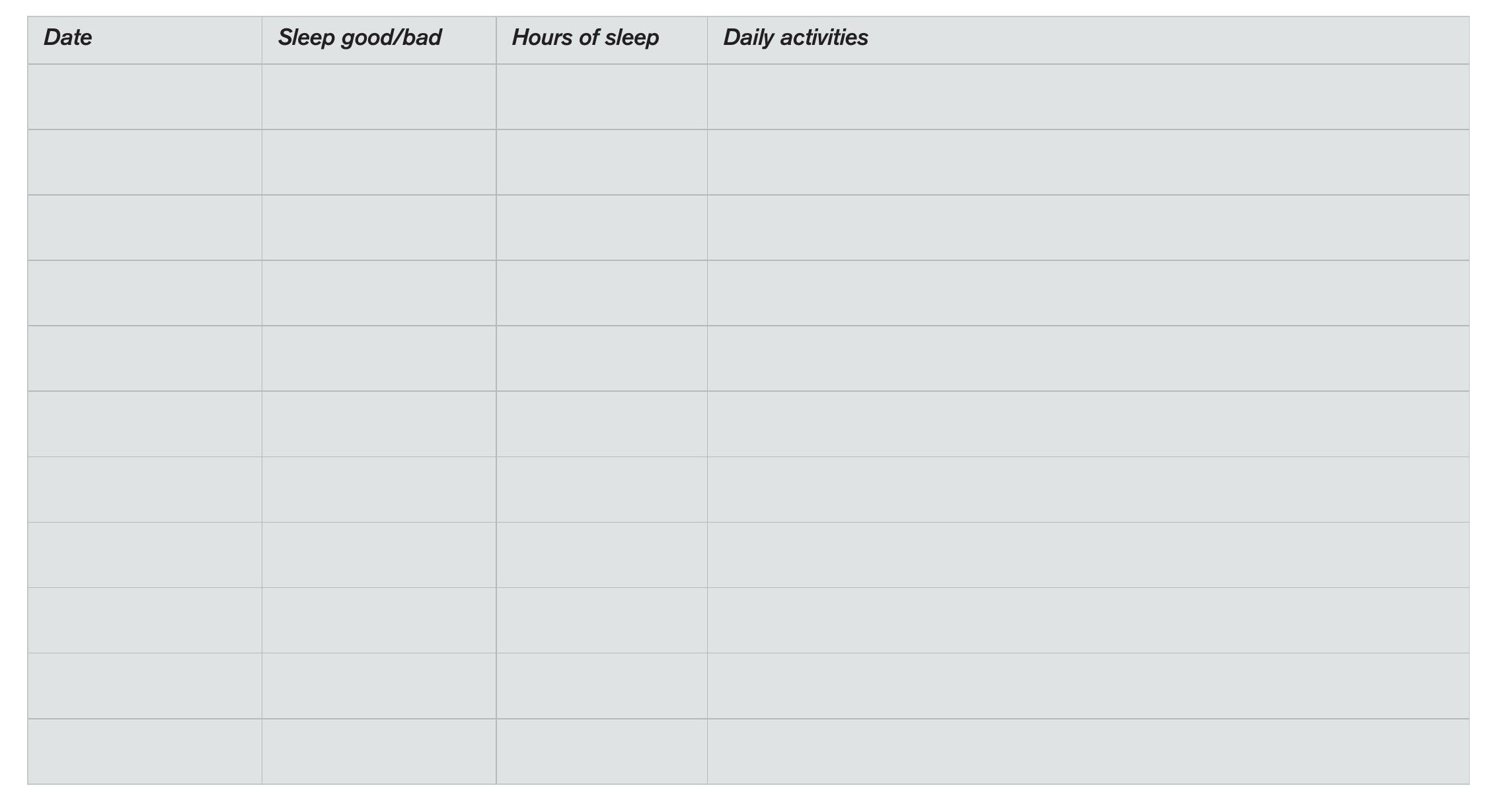
1 Several psychological studies of sleep have employed the diary method. This is pretty self-explanatory, but look it up if you are not sure. I am sure you would find it interesting to keep a diary of daily (or evening) entries of your sleep patterns over a period of, say, 1 month. When did you sleep well; when did you sleep badly? Can you discern any consistent characteristics of the good and bad periods — for example, stress, success, tobacco or alcohol consumption (if these are relevant to you)? Use the table below to get you started.
2 The author states ‘The purpose of stages 1 and 2 (of sleep) remain largely a mystery’. Check through your textbooks or do an online search and see if you can find any suggestions for what these two stages might be for.
Your organisation does not have access to this article.
Sign up today to give your students the edge they need to achieve their best grades with subject expertise
Subscribe




